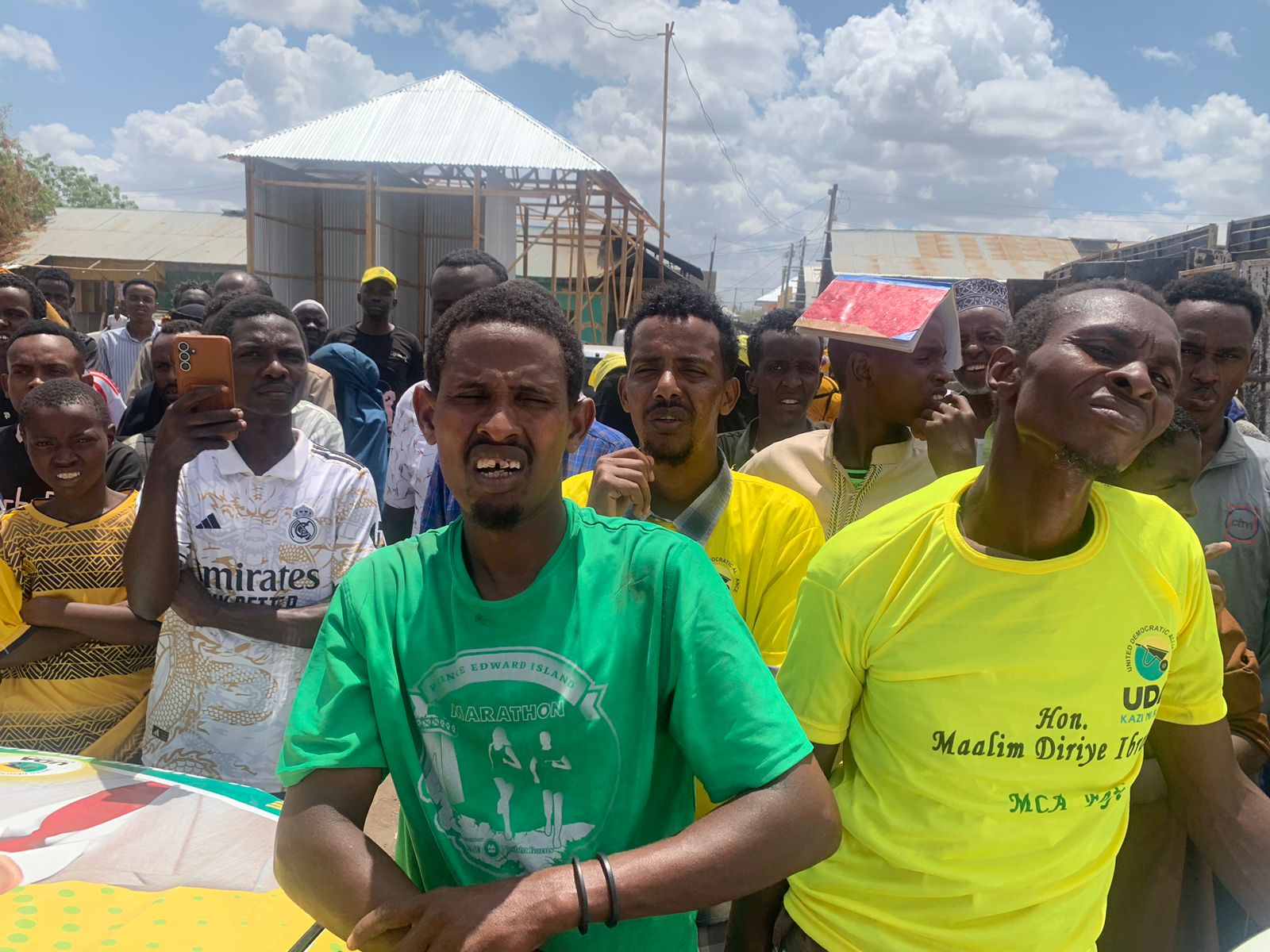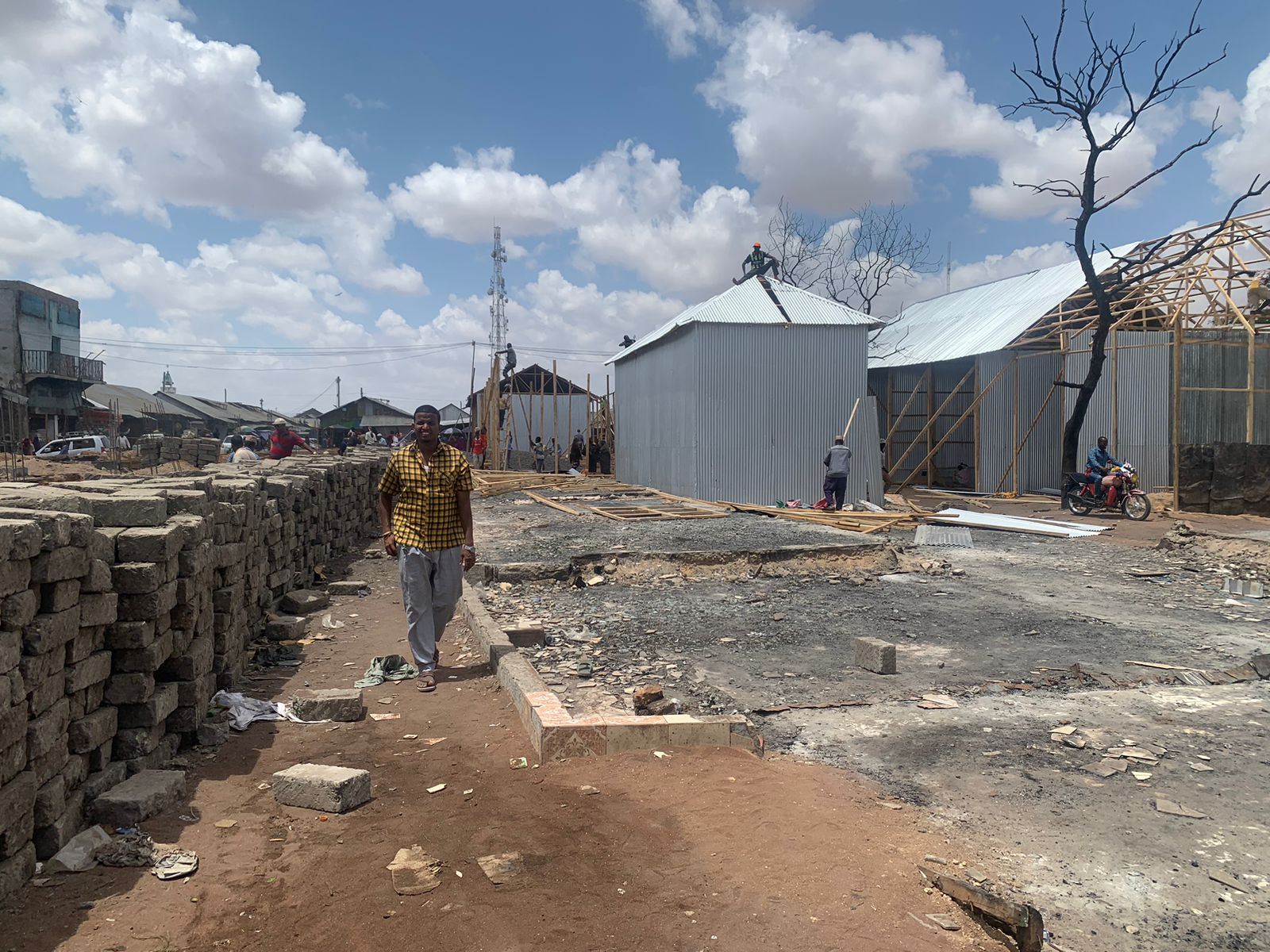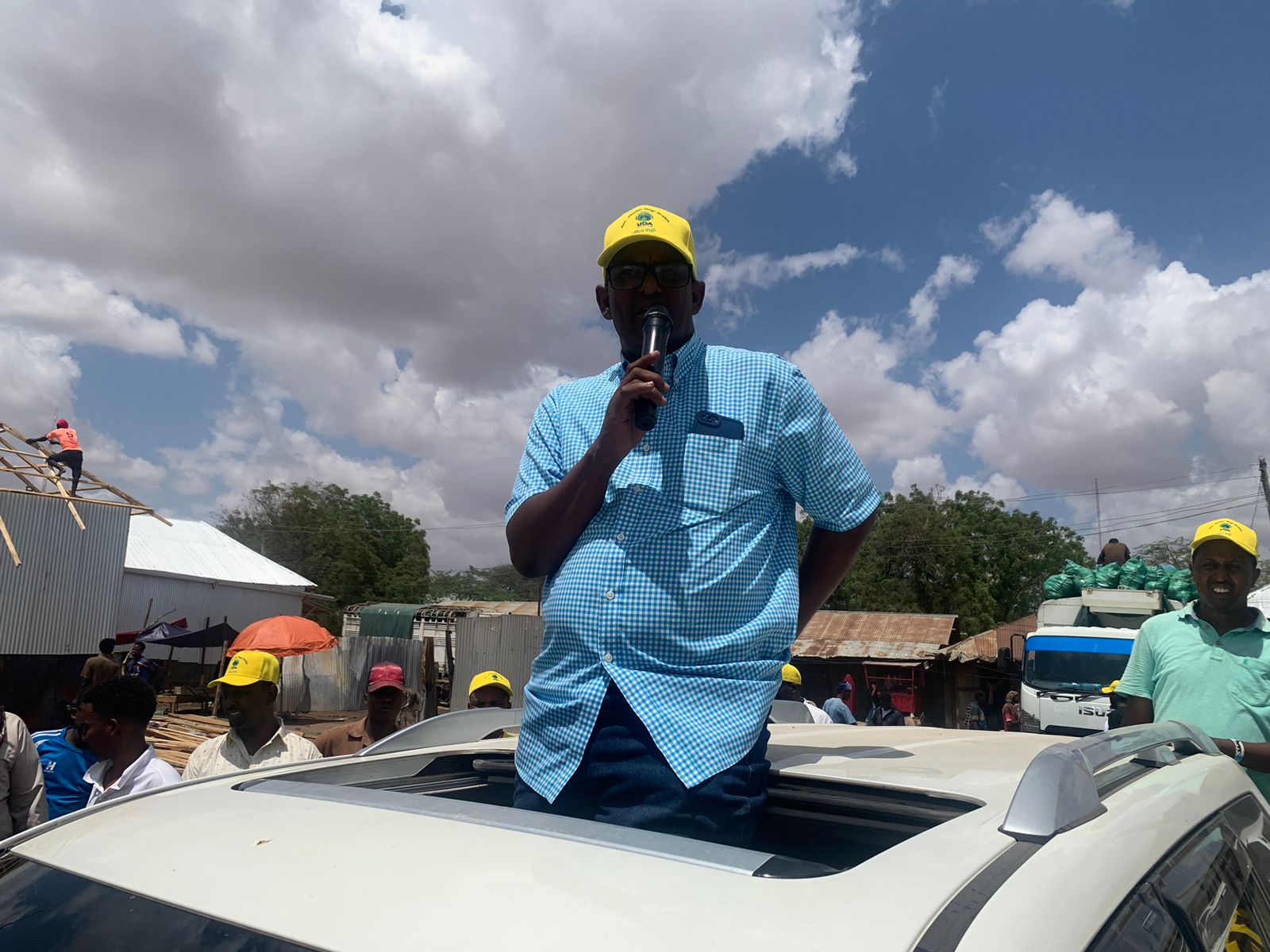 Residents of Fafi ward at the Hagadera market./STEPHEN ASATRIKO
Residents of Fafi ward at the Hagadera market./STEPHEN ASATRIKO Traders at the Hagadera market busy reconstructing their
stalls./STEPHEN ASTARIKO
Traders at the Hagadera market busy reconstructing their
stalls./STEPHEN ASTARIKO Fafi ward UDA candidate Diriye Ibrahim addresses Traders at the Hagadera market./STEPHEN ASTARIKO
Fafi ward UDA candidate Diriye Ibrahim addresses Traders at the Hagadera market./STEPHEN ASTARIKO
Traders at Hagadera Market in Fafi subcounty are appealing for urgent government support after a fire burnt down
their stalls last week, leaving them counting losses worth millions of
shillings.
They accused the national and county governments, as well as the UNHCR, of abandoning them in their hour of need.
The market at the heart of Hagadera Refugee Camp was reduced to ashes despite efforts by the Kenya Red Cross Society and local
fire teams to contain the blaze.
Speaking at the site of the burnt
market, the traders expressed frustration over what they described as a lack of
response from authorities.
“It is exactly one week since fire
consumed our market and destroyed everything we owned. We thought either the
national or county government would come through for us, but unfortunately, no
help has been forthcoming,” trader Mohamed Hussein said.
A spot check showed traders have started rebuilding their stalls, some using salvaged iron sheets while others bought
new ones.
Halima Hussein, who lost her clothes
stall in the fire, said she had decided to rebuild using her limited savings.
“It’s clear we are on our own, as
has always been the case. One week later, there’s still no word from the people
we expected to help us. I decided to reconstruct my stall and restock using the
little money I have,” she said.
Ambia Hussein urged
authorities to equip the market with fire extinguishers and install water points to
prevent similar disasters.
“God forbid if a fire broke out
again today—everything would still go up in flames because we have no safety
equipment or water points nearby,” she said.
The cause of the fire is yet to be
established, though witnesses believe it may have started from an electrical
fault in one of the stalls before spreading rapidly due to strong winds and the
close spacing of the wooden structures.
Hagadera market serves hundreds of
residents from surrounding villages and refugee camps, making it a vital
economic hub for the region.
While campaigning in the area on
Wednesday, Fafi ward UDA candidate Diriye Ibrahim called for the
establishment of a fire station in Hagadera town to ensure faster response to
emergencies.
“It is sad that there is no fire
station in Hagadera. Four fire engines brought by UNHCR are parked at the Kenya
Red Cross camp in Dadaab, nearly 10 kilometers away. They should be stationed
here, and the county must bring another,” he said.
Ibrahim also urged the county government
to suspend all revenue charges for traders for at least a year to allow them
time to recover and rebuild their livelihoods.
Diriye commended the traders for
their resilience and determination to get back on their feet despite the heavy
losses.
INSTANT ANALYSIS
The Hagadera market fire exposes deep gaps in emergency preparedness and government responsiveness in marginalised regions. Despite the market’s economic importance, the lack of a nearby fire station or basic firefighting equipment left traders helpless as their livelihoods went up in flames. The incident underscores how refugee-hosting communities often fall through the cracks of national and county support systems. Traders’ efforts to rebuild on their own reflect resilience amid neglect, but also highlight systemic failure in disaster management and risk mitigation. Without proper infrastructure, coordination, and safety enforcement, such preventable tragedies are bound to recur.













